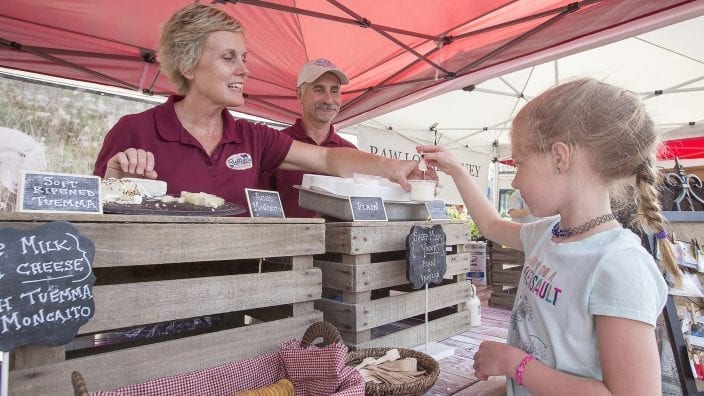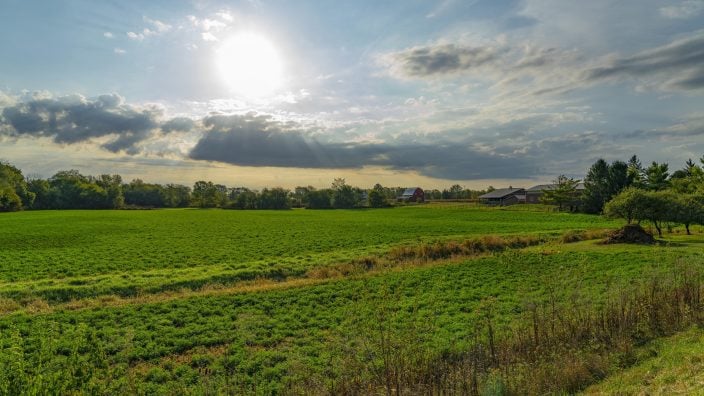Farmer’s Guide to Trucking Regulations available to Ohio Farm Bureau members
The guide includes a farm driver checklist, overview of state and federal regulations and exemptions, CDL qualifications and more.
Read More
Hello, everyone. Well, it’s been a wild ride the past couple of weeks, and I hope you are all making the best of the “stay at home” order.
As some of you are aware, our physical office is closed, but everyone in our office is still working and available to assist you if you have any questions. You can call our main number 330-638-6783, and, as long as our computers are on, you’ll be connected to us wherever we are. You can also always contact me by email.
Even though we had to cancel or postpone most of our upcoming programs, OSU Extension is still offering virtual events here at 9 a.m., noon, and 3 p.m. weekdays on a variety of topics.
Many farmers are still plugging along with their spring activities — fixing equipment, preparing fertilizer programs, soil testing and more. Although you may consider texting while the tractor is on autosteer “teleworking,” farmers cannot phone in most of their duties, like completing tillage, planting and spraying crops. Not to mention all the needs of livestock that have to be milked, fed and generally cared for, no matter what is going on the world.
Although farmers must keep working through COVID-19, I find they’re generally very good at practicing social distancing. Tractor cabs don’t hold more than two people. In a little over a month, most farmers will be attempting to get their crops planted — if the weather permits. Predicting the weather is one of the most difficult things in the world because of the way we all plan our days around the weather, and I think our meteorologists are already stressed. The weather patterns keep shifting, making long-range forecasts extremely hard to predict accurately. Earlier this year, it looked like March would have average rainfall and above average temperatures. While the temperature part was right, much of the state has already surpassed average rainfall, with more moisture on the way. Right now, we should expect to see an extra 1.5″ of rain above average for just the last two weeks of March. Like I said, forecasting is difficult this year, but it is expected that we will see a much wetter than normal April and May.
There are a few fundamentals that we need to remember heading into planting season, whether you are preparing 1,000 acres of corn or 1,000 square feet of garden.
• Don’t till wet soil. You will be setting yourself up for compaction, poor seedbed prep and a season of frustration as you deal with ruts. I know there are times when the clock starts to dictate when conditions are “good enough,” but wait for drier conditions if you can.
• Don’t plant too early. Soil temperature plays a huge role in getting good seed germination, and, unless you are growing cold season crops (peas, oats, etc.), you want to wait until the soil temperature reaches 50 degrees. Planting when it is cold might result in rotten seeds that don’t germinate, or — more likely — plant diseases that kill seedlings.
• Don’t plant in wet soils. Planting in wet soils causes compaction on the sides of the seed furrow that will limit root growth. Corn is very susceptible to this and you will see the roots follow the seed trench and not penetrate the compacted sides and bottom. After corn gets about 12″ tall it will not be able to support itself, and will begin to fall over. This is aptly named floppy corn syndrome.
• Don’t fertilize too early. Some nutrients, like potassium, you can apply without much concern that they will disappear before the crops need it. Nitrogen, on the other hand, is a little more finicky and if applied too soon will be washed away in the water, go into the atmosphere, or generally not be available when the crops need it. It’s also very expensive.
• Don’t skimp on the maintenance. In the last two years, we have had extremely small windows to plant our crops. The last thing you want to do is have your tractor or planter break down during one of these windows, delaying progress for two weeks. Go over your planter one more time to find anything that looks like it could be an issued. You want to be ready to go without issues.
Take care, and stay healthy.
Submitted by Lee Beers, OSU Extension Educator.
OFBF Mission: Working together for Ohio farmers to advance agriculture and strengthen our communities.


The guide includes a farm driver checklist, overview of state and federal regulations and exemptions, CDL qualifications and more.
Read More


Ohio Farm Bureau provides opportunities, platforms and resources to help you develop your voice in the industry and give farmers a seat at the table with leaders and legislators.
Read More

The emergency fuel waiver to allow the sale of summer gasoline blends containing 15% ethanol will lengthen the period during which Americans can continue buying E15 from June 1 to Sept. 15.
Read More

The Small-Scale Food Business Guide covers federal and state regulations for selling food products such as raw meat, dairy, eggs, baked goods, cottage foods, fruits and vegetables, honey and more.
Read More

New resources and technology are broadening the different types of sales tools and strategies available to farmers.
Read More

ODA will enroll 500,000 acres into the program for a two-week sign-up period, beginning April 22, 2024, through May 6, 2024. Contact local SWCD offices to apply.
Read More

Katie Share of Columbus has been named ExploreAg and Youth Development Specialist for Ohio Farm Bureau.
Read More

Mary Klopfenstein of Delphos has been named Young Ag Professional and Ag Literacy Program Specialist for Ohio Farm Bureau.
Read More

The plan has been updated to give sole proprietors access to more rate stability and a smart solution that offers potential savings on health care.
Read More

The American Farm Bureau Federation, in partnership with Farm Credit, is seeking entrepreneurs to apply online by June 15 for the 2025 Farm Bureau Ag Innovation Challenge.
Read More